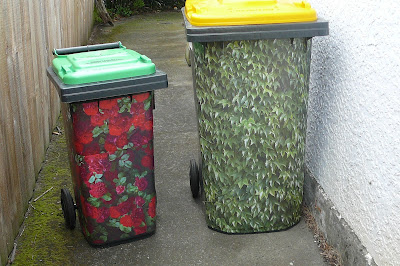Community Engagement - Part 1
On Tuesday there was a Community Engagement meeting set up under the auspices of the Ministry of Social Development (MSD) and the Christchurch City Council (CCC). The purpose was to have a conversation about us owning our community recovery.
The majority of those present were from MSD or CCC.
Note: the next few paragraphs talk about the pilot scheme and involve jargon, if these sorts of things bore you skip down to the bottom bit.
The meeting was part of a pilot scheme in Aranui and Avonside/Dallington to look at ways of engaging the community in conversations about earthquake recovery, so communities own their own recovery. [note: these are the words from the invitation to the meeting].
There were conversations (it appears we don't discuss things any more), first around how things felt now (write down what you did yesterday), then about how agencies could communicate with communities, and how communities communicated within themselves.
Notes were taken and no doubt there will be feedback to the participants.
Bottom bit
All this was well and good. However it is clear to me that this deals with only part of the expectations of those who represented actual communities (the smaller part of those attending).
There was reluctance to look at how the experiences of February 22nd had lead to:
Something developed in isolation from these survivor experiences is going to be somewhat hollow, and unlikely to retain support much into the future.
More on this in the next post.
The majority of those present were from MSD or CCC.
Note: the next few paragraphs talk about the pilot scheme and involve jargon, if these sorts of things bore you skip down to the bottom bit.
The meeting was part of a pilot scheme in Aranui and Avonside/Dallington to look at ways of engaging the community in conversations about earthquake recovery, so communities own their own recovery. [note: these are the words from the invitation to the meeting].
"Now that we have all had some time to assess response issues and have some conversations and connections following the February 22nd earthquake, we would like to facilitate an initial conversation around the earthquake recovery process.
We are implementing a pilot engagement project for two neighbourhoods in the Eastern and Central Suburbs - Aranui and Avonside/Dallington. The intention is that the pilot will be developed to be successfully replicated around relevant areas of the city.
You have been identified as a leader in your community and we would appreciate your input to ensure we get this very important next step right. We share your view that local communities need to own their own recovery. With this in mind we would like you to provide us with advice and guidance on the best way to progress this in your community.
The meeting will be held at the Wainoni Methodist Church, 878 Avonside Drive, on Tuesday 5th April from 3-4.30pm.
In order to make the most of your time, recognising you are all extremely busy and attending a lot of meetings at present, we would like you to consider the following topics prior to the meeting:
- What is the best way to connect with your communities
- Where are your natural community meeting places
- What local community well being information can you/your group share about what is happening/not happening in your community
- What earthquake related community programmes have you/your group initiated
- What needs to be considered in the design of the process given your local knowledge of the community
- What role do you envisage for yourself/your group as an enabler for long term recovery
There were conversations (it appears we don't discuss things any more), first around how things felt now (write down what you did yesterday), then about how agencies could communicate with communities, and how communities communicated within themselves.
Notes were taken and no doubt there will be feedback to the participants.
Bottom bit
All this was well and good. However it is clear to me that this deals with only part of the expectations of those who represented actual communities (the smaller part of those attending).
There was reluctance to look at how the experiences of February 22nd had lead to:
- where we are now,
- the discoveries of things that had not worked well, or at all,
- the passion to fix those problems now,
- the priorities and aspirations we now have.
Something developed in isolation from these survivor experiences is going to be somewhat hollow, and unlikely to retain support much into the future.
More on this in the next post.
